“So, you’re at uni. What are you studying?”
“I study English Literature and Creative Writing”
[…]
Awkward pause (If I had named a Science/Engineering/Business degree, the pause would have been replaced with exclamations of ‘wow’, ‘that’s cool’ or ‘you’re so smart’ etc.)
Instead I continue with: “It’s great, lots of reading though! But I love it….”
The conversation of course doesn’t always go like that – just most of the time. But the funny thing is, I’m not lying when I say English Literature is lots of reading and I love it. I have thoroughly enjoyed it. So much so, that when I finished my last academic set-text two weeks ago, I didn’t throw a party and swear to never pick up another book again. Instead I turned to the long list of books I’ve accumulated on my wish list over the years and hit the library and book shops.
Studying English Literature hasn’t made me hate reading, instead, it’s only served to invigorate my love for books and I will continue to be the girl who has more books than anything in her room, who spends hours browsing in Waterstones, or Foyles. Of course, I won’t miss the heavy, rambling theory, essay deadlines and exams as much. Or the books I was assigned that I didn’t enjoy (trying to get through Lolita and Heart of Darkness to name a few were excruciating) thankfully the nature of my degree meant that I could skip most of those ones…
Instead here’s a list of my favourite set-text books over the past four years:
An ambitious novel of anarchist utopia, The Dispossessed is my favourite assigned text I’ve read for my degree. It was on the list of one of my favourite modules – Alternative Lifeworlds Fiction (Science Fiction and the Weird). Sci-fi and dystopian narratives are my favourite genre to read as well as write in, and Ursula K. Le Guin being the Queen of sci-fi, I’m surprised it took me this long to discover this novel!
- The Picture of Dorian Gray, Oscar Wilde
I had already read this novel for my Extended Essay when doing the International Baccalaureate. Returning to it in my second year at uni, for my 19th century literature module only confirmed the text as one of my favourites. Oscar Wilde is famous for his personality and witticisms as well as his writing. With many interesting theories about art and life, I think the final line of the preface to A Picture of Dorian Gray, ‘All art is quite useless’ – is a challenge to the reader. For studies or just for a good read, I don’t think I’ll ever tire of reading The Picture of Dorian Gray.
- The Brief Wondrous Life of Oscar Wao, Junot Diaz
This novel is the heart-breaking story of Oscar, who lives with his Dominican family in New Jersey. The novel is humorous, sad, moving and deeply poignant for our time, raising important questions about the tenuous historical relationship between the Dominican Republic and North America and the life of the Dominican diaspora in America. I quickly read Diaz’ other published works, his short story collections, Drown, and This is how you lose her – both of which I’d highly recommend.
- A Fine Balance, Rohinton Mistry
Similar to the previous title, I recently read A Fine Balance for a new module about Global cities. Mistry’s novel is set in an ‘unidentified city’ with many hints that it’s Mumbai. The long epic novel, is about how various characters from very different backgrounds come together in a turbulent time in history. A Fine Balance takes you on an emotional rollercoaster engaging you so deeply in the characters’ struggles its hard to put down, even through their most devastating moments.
- Accelerando, Charles Stross
Accelerando is unlike any other science fiction novel I have ever read. It’s title refers to the speeding up of time and development of humanity as the novel charts three generations of a family into the future. Despite the complex themes and concepts the novel handles, I found it a mind-blowing enlightening read and will definitely have to revisit it at some point as there’s so much to get out of Stross’ complex, world.
- The Female Man, Joanna Russ
The Female Man is a radical feminist, science fiction. It cleverly deconstructs many myths concerning gender. The novel follows four different women living in parallel worlds. The contrasts between the worlds and the way the women’s lives intersect not only made it a dream to analyse but also a great read.
- Midnight Robber, Nalo Hopkinson
One of the great things about the Science-Fiction module I studied, is that it interested me to Afro-Futurism. In the future, seven-year-old Tan-Tan Habib finds herself travelling through time to an alternate universe version of her city called New Half-Way Tree. Recently I read this great article that says: “In order to find purpose and affirmation, a Black artist must undermine time and space as we know it to find a place for his or herself.” It’s novels like Hopkinson’s Midnight Robber, that achieves this and more.
8. Persepolis, Marjane Satrapi
I don’t normally read comics and yet I thoroughly enjoyed Satrapi’s graphic autobiography. Persepolis is the story of Satrapi’s early adult and years in Iran during and after the Islamic revolution. The comic is not only educational but it’s very clever in how it draws the reader in through the images to engage with the author’s emotional journey growing up in a world of revolution.
- Ilustrado, Miguel Syjuco
I tend to get frustrated with unreliable narrators, however the narrator in Ilustrado leads the reader deep into the lives of the two protagonists, Miguel Syjuco and his dead mentor. On the surface Ilustrado is a mystery, focused on Miguel’s search for his dead mentor’s missing manuscript, however this search becomes about so much more.
- Bleak House, Charles Dickens
With over 800 pages, Bleak House is a trek of a novel, and yet it’s completely worth the read. It’s often described as the first murder-mystery novel. But what really sells the novel for me is Dicken’s unforgettable, hilarious and well-developed characters.
Some honourable mentions that almost most the list, and I would definitely recommend to others are – My Brilliant Friend by Ella Ferrante and Ursula K. le Guin’s short story, “Those Who Walk Away from Omeleas”.
My favourite discovery on my course was the incredible poet and activist Audre Lorde. While her collection “The Black Unicorn” wasn’t assigned to me, I thoroughly enjoyed writing about her and soon went on to read her alternative ‘biomythography’ – Zami: A New Spelling of My Name.
Being assigned books has meant that I’ve of course had to study books I didn’t enjoy but it has also forced me to read outside my comfort zone and there’s nothing like enjoying a book you wouldn’t have come across of your own volition.
What books have you studied or that were recommended to you and you ended up liking?

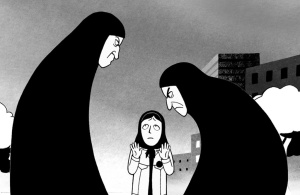
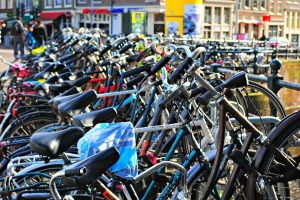
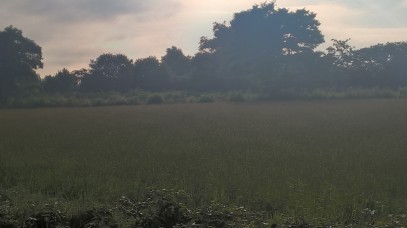
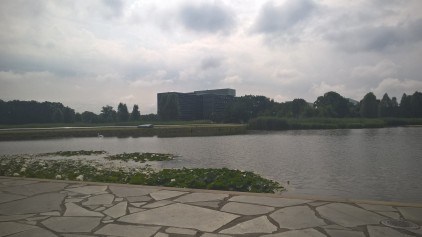
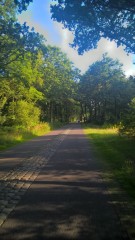
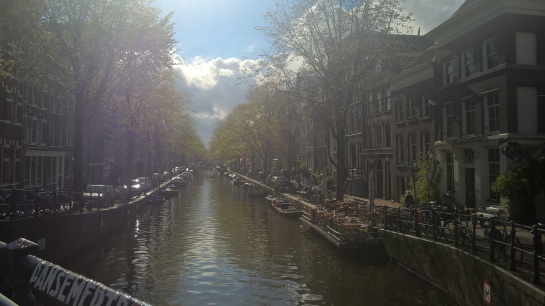

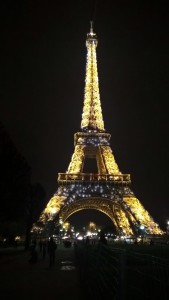
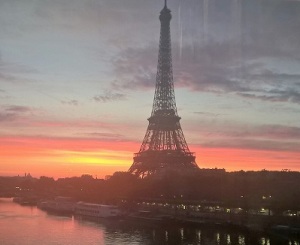
 l Engines is the first book of four novels in the ‘Instrumental Devices’ series and is number one on my list because it checks all the essential criteria of a good sci-fi novel. It has great characters that develop and grow throughout the series, an original concept and setting and finally, an action-packed plot. Mortal Engines is set in a post-apocalyptic world that was destroyed by the nuclear ‘Sixty Minute War’. All cities have broken off from their former countries to become ‘Traction Cities’, individual states that can move and must ‘consume’ smaller cities for their parts and engines in order to keep moving.
l Engines is the first book of four novels in the ‘Instrumental Devices’ series and is number one on my list because it checks all the essential criteria of a good sci-fi novel. It has great characters that develop and grow throughout the series, an original concept and setting and finally, an action-packed plot. Mortal Engines is set in a post-apocalyptic world that was destroyed by the nuclear ‘Sixty Minute War’. All cities have broken off from their former countries to become ‘Traction Cities’, individual states that can move and must ‘consume’ smaller cities for their parts and engines in order to keep moving. most haunting post-apocalypse novels I have ever read. It offers its readers no
most haunting post-apocalypse novels I have ever read. It offers its readers no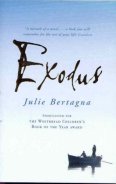


 till read the book first!
till read the book first!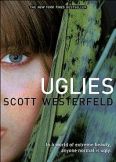
 apocalyptic novels on my list. The book jumps from three generations of a family during the
apocalyptic novels on my list. The book jumps from three generations of a family during the

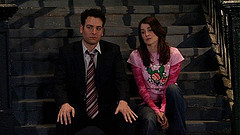 etter time to begin my blog, than on the first day of April, the month which I am named after (but is not the month of my birthday, just in case you were wondering) and just so happens to be the day that I watched the last episode of ‘How I met your Mother’ (HIMYM). How I met your mother, those five words that began a long story that has kept thousands of viewers guessing for nine long series, and surprisingly, kept me guessing too. Its rare that a twist in a series or film can catch me so off guard, yet the ending of HIMYM for me, was a pleasant surprise and here’s why.
etter time to begin my blog, than on the first day of April, the month which I am named after (but is not the month of my birthday, just in case you were wondering) and just so happens to be the day that I watched the last episode of ‘How I met your Mother’ (HIMYM). How I met your mother, those five words that began a long story that has kept thousands of viewers guessing for nine long series, and surprisingly, kept me guessing too. Its rare that a twist in a series or film can catch me so off guard, yet the ending of HIMYM for me, was a pleasant surprise and here’s why.